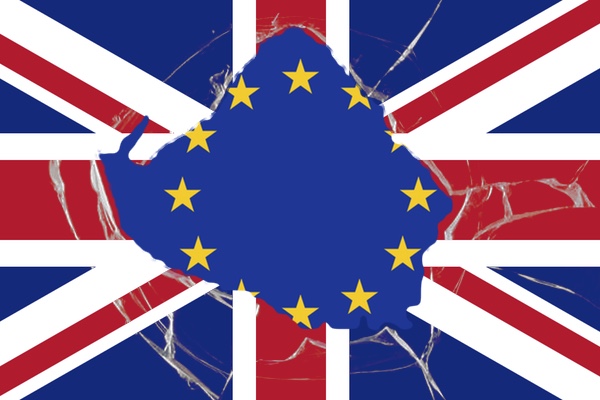Racism Wasn’t the Reason the English Voted for Brexit

When the Pew Research Center polled European people on their attitudes to the flow of refugees from the Middle East and North Africa just after in the Spring of 2016 the British were the least troubled. They had the most favorable opinions of Muslims living in their country of the 10 countries polled. They were less convinced that refugees would increase the risks of terrorism or be a burden on the state than most of the nations. Yet, after they voted to leave the European Union with its open borders this has so often been ascribed to xenophobia that it has become the conventional wisdom. Motives are always mixed but many older Britons voted for BREXIT because they felt that they had been tricked into joining a European Union when they thought they were voting for a free trade area. They were skeptical of experts who gave warnings about BREXIT and, as far as immigration was concerned, English people in particular were concerned about the overcrowding of their country and its effect on transport, housing and other services.
People had also seen that the European Union, like all confederations, cannot react appropriately to events. The EU failed to keep the peace during the breakup of Yugoslavia and to reassure its members when the refugee crisis began to encourage the growth of ultra-nationalist parties. The Euro has impoverished thousands of South Europeans. Far from improving relations between its members, as the Common Market was intended to do by its founders, the Euro has left deep resentments; the Germans blame the South Europeans for their fecklessness and the South Europeans complain of German domination.
The EU is, then, faced with a choice: either it moves toward union or it becomes a loose customs union. Many of Europe’s leaders would choose the first course. Many British people voted for Brexit as they thought it was their last chance to preserve the country’s ever-diminishing sovereignty. They would never be given another vote and the inexorable process toward closer union would continue. The time it will take to extract the country from the EU’s entanglements suggests that suspicions about the loss of sovereignty were justified.
What particularly annoyed voters were the supercilious claims of the political and financial elite that they lacked the knowledge to understand the advantages offered by the EU. They knew that it was the bankers who were responsible for the financial crisis. They could see that governments were unsure how to respond to it and, above all, that the Euro countries were finding it difficult to recover from the crisis.
Nor were the bankers the only experts to fail; the Chilcot inquiry into the origins of the Iraq War showed that the only time recently when Intelligence decided whether the country would go to war, the Intelligence Services had provided misleading advice. Iraq did not then have chemical and biological weapons. Similarly, senior officers in the armed forces had been over optimistic about the campaign’s prospects in 2003. Together the Afghan and Iraq Wars appeared to have delivered little to the peoples of those two unfortunate countries.
Brexit’s critics claim that its supporters were motivated mainly by racism. Yet half the recent immigrants have come from Eastern Europe and it is only such European immigrants who could be limited by BREXIT. It is hard to see why these should be regarded as a different race, however defined. Culturally they are often closer to the British than other immigrants. Finally, Pew’s July and December 2016 publications showed that Britons were less hostile to racial and cultural diversity than many other European peoples.
What makes England different from its European neighbors is not then its racism or culture but the effect of the likely numbers of immigrants. England covers some 50,000 square miles and has a population of more than 54 million, making it the most densely populated large power in Europe with the most crowded roads. England’s population density is many times Scotland’s and this helps to explain the difference between the English and Scottish votes in the referendum because most immigrants settle in England.
One of the arguments advanced by the supporters of the Remain campaign during the referendum debate was that the EU had protected the peace of Western Europe. In fact peace was preserved by NATO and by US membership of that organization for some years before the Common Market was even founded. The EU adds little to the common defense against conventional threats. Left to itself today it would be unable to protect Europe from a restless Russia because its rich members spend too little on defense.
Opinion polls varied but long before the referendum there were signs that the British public were wary of the EU’s federalist ambitions. In a survey by Chatham House and YouGov published in July 2011 35 percent said they favored weaker diplomatic ties with the EU, 36 percent said they should stay the same and only 15 percent said they should be stronger. Comparing nine international institutions the EU was the least favored. 56 percent believed strongly that Britain spent too much on its EU contributions. That was not to say that people objected to working closely with the EU on terrorism, migration, climate change, trade, defense and foreign policy but wisely they distinguished between collaborating closely and integration. The difference between a free trade area and a union is like that between a working relationship and a marriage, and the British preferred the first.